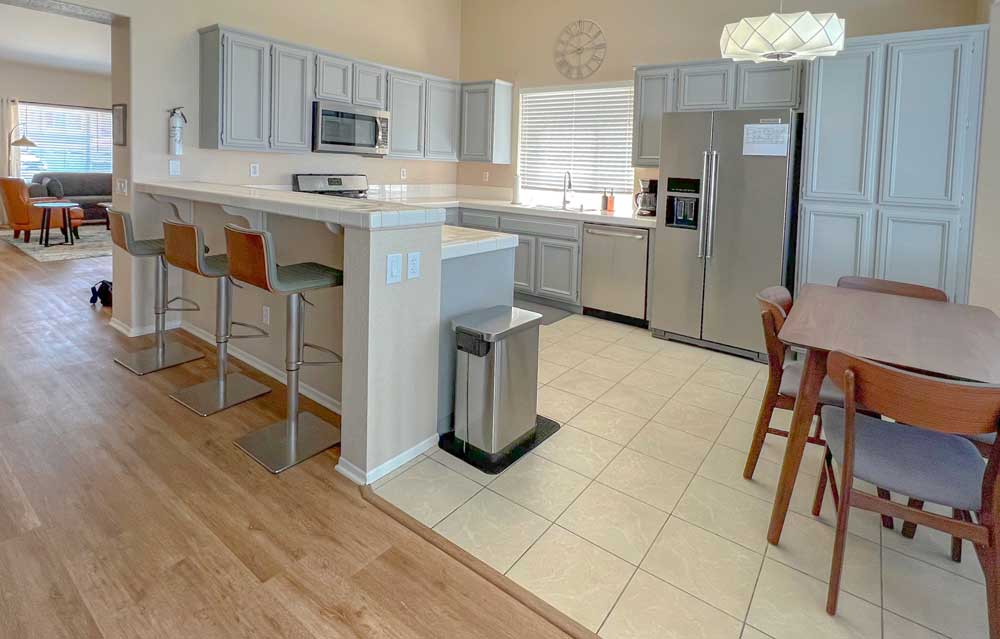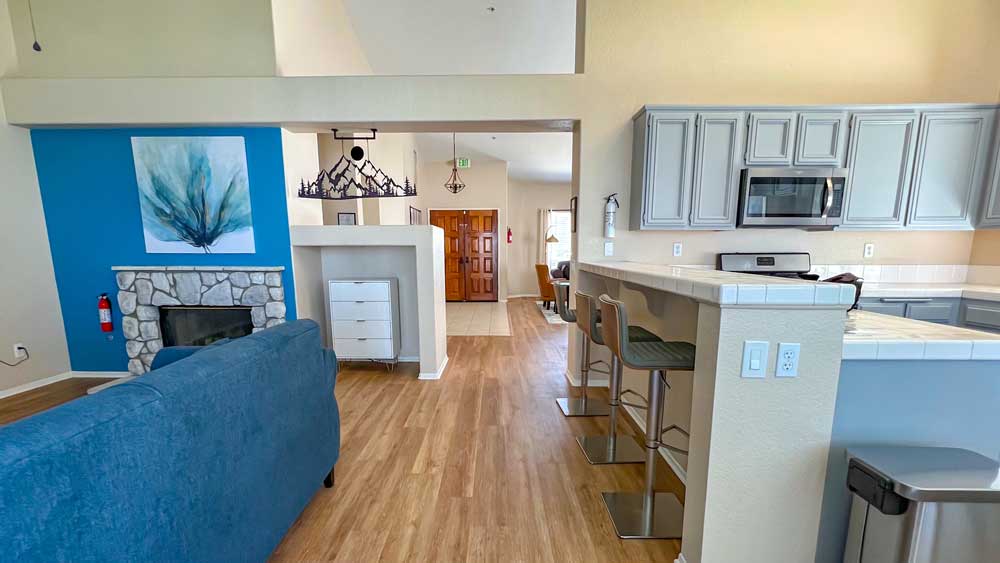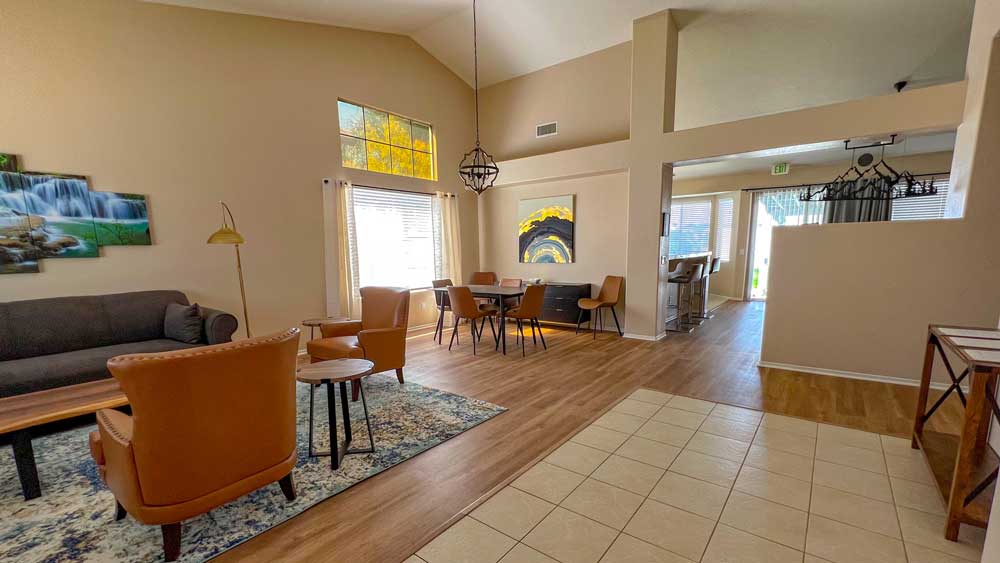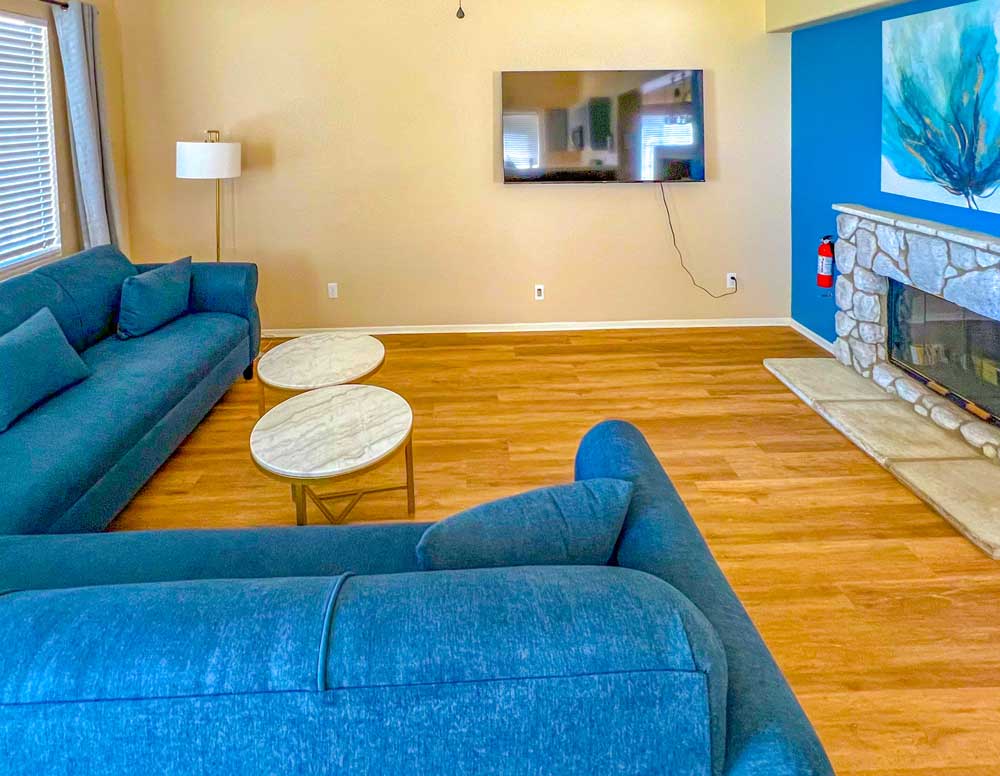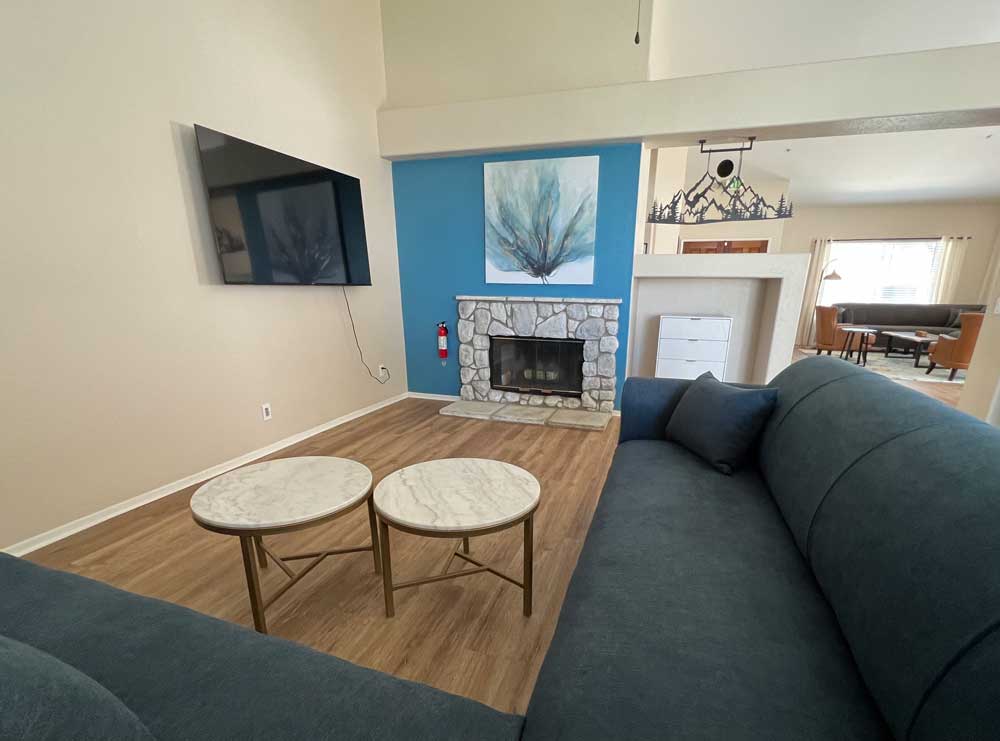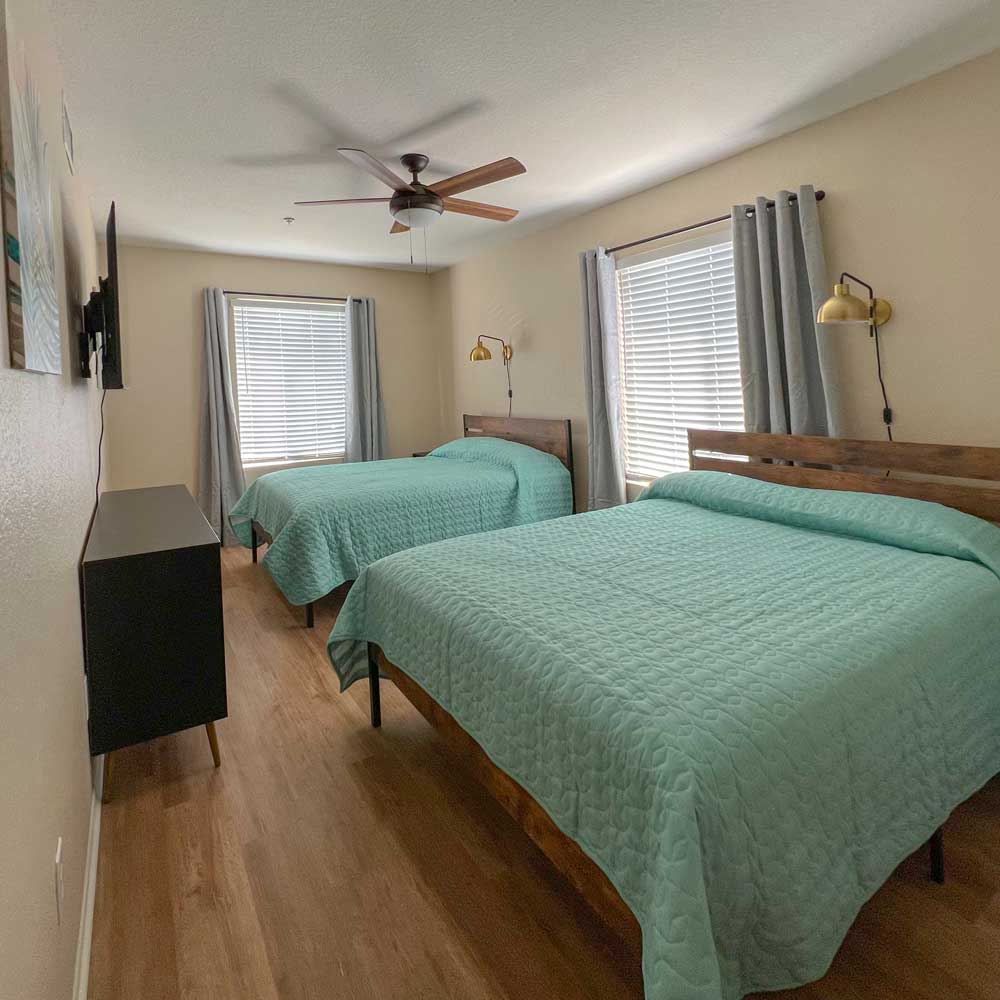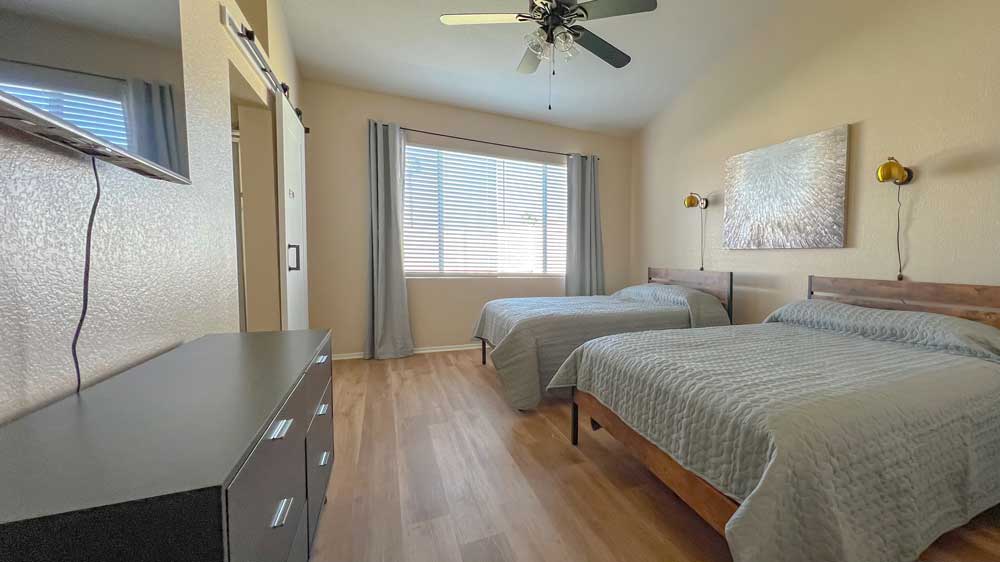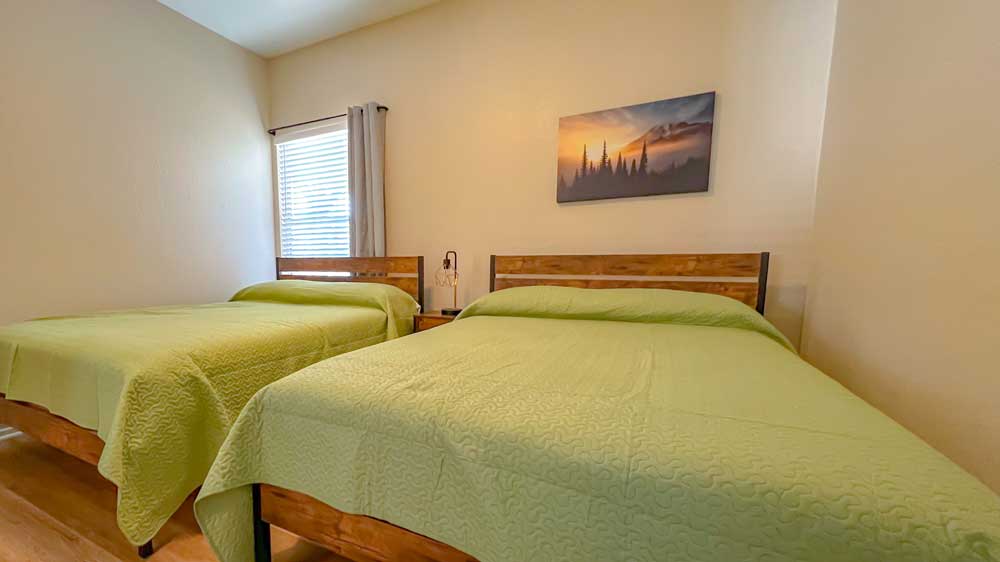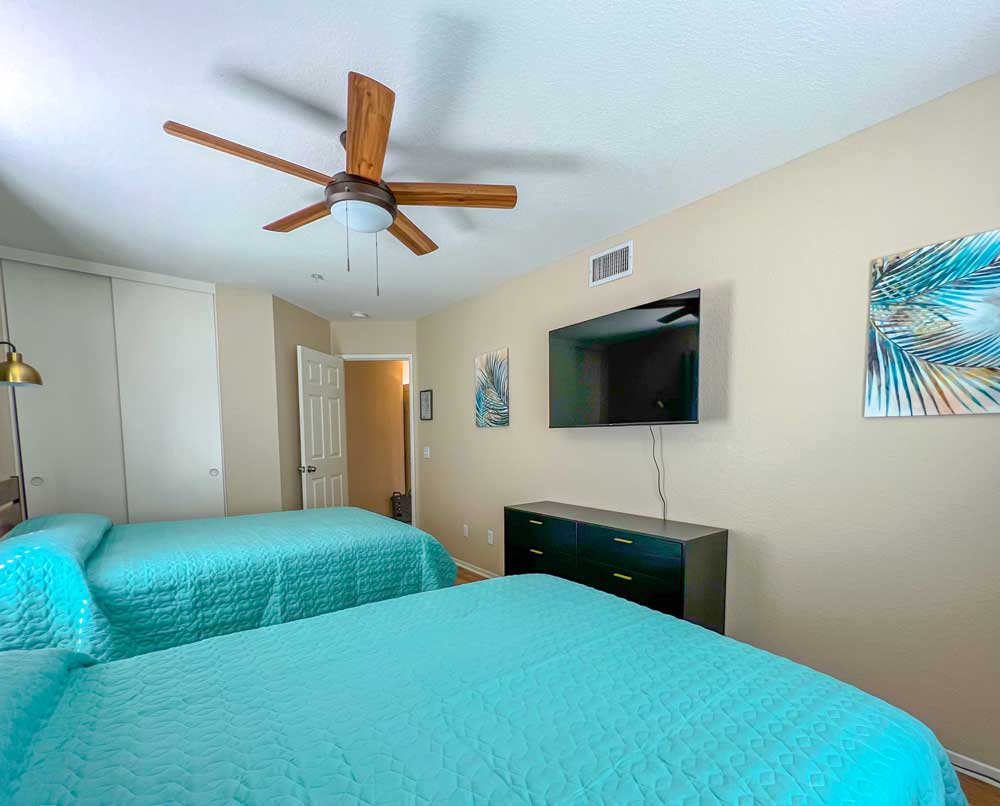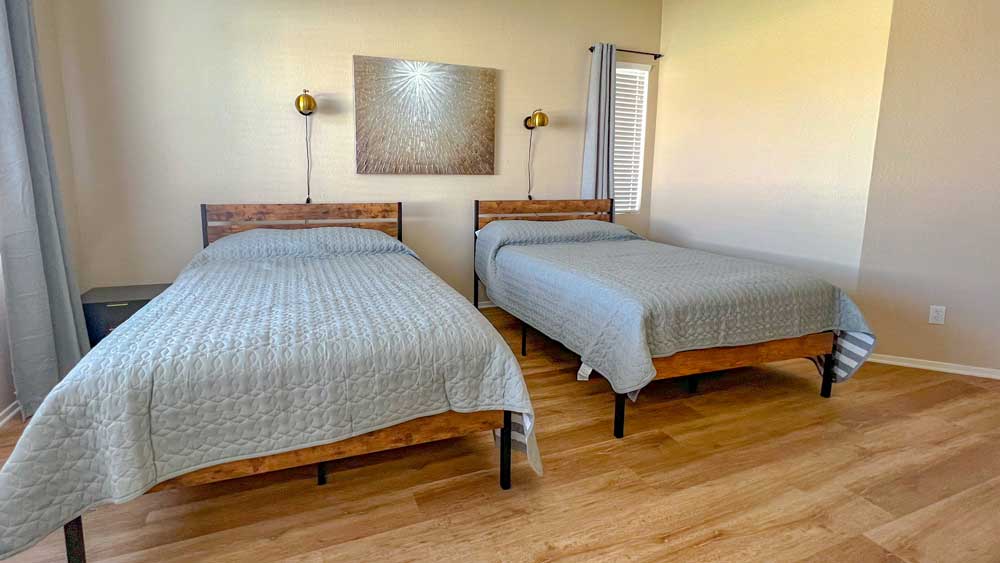WELCOME TO MOUNTAIN SKY RECOVERY: CALIFORNIA RESIDENTIAL TREATMENT FACILITY FOR SUBSTANCE USE AND MENTAL HEALTH DISORDERS
Mountain Sky Recovery is a leading residential treatment facility California offering comprehensive programs for substance use and mental health disorders. Our expert care includes intensive outpatient programs, dual diagnosis support, and personalized therapies to help patients in Southern California achieve lasting recovery.
Tailored Residential Treatment for Individuals Facing Mental Health and Addiction Issues
Our Approach to Residential Treatment at Mountain Sky Recovery
Are you or someone you love struggling with mental health or substance abuse? You are not alone—and there is hope. Residential treatment facilities in California offer a safe space for healing. These places help people live better lives. With a team of caring professionals, you can feel supported every step of the way.
At our residential treatment center, people stay full-time while they get care. This is called inpatient mental health treatment. It gives you time to rest, heal, and grow stronger.
Let’s talk about what these places offer, how they help, and why so many choose California for mental health and addiction support.

Contact Us!
What is a Residential Treatment Facility?
A residential treatment facility is a special kind of health facility. It helps people who are facing serious challenges like:
-
Mental health disorders
-
Substance abuse and addiction
-
Dual diagnosis (mental health and substance use together)
You live at the center while getting care. You don’t have to worry about the outside world. Instead, you can focus fully on your therapy and recovery.


Rediscover Love & Sobriety at Our Couples Rehab Program
Every journey begins with a single step, and your shared path towards sobriety and a strengthened bond is no different. At Mountain Sky, we’re committed to guiding couples through the intricacies of substance abuse, providing a tailored approach that respects the unique challenges and strengths of each relationship. Don’t let addiction define your story. Choose a brighter, unified future.
Why Choose California for Treatment?
California is home to many of the best mental health treatment centers in the country. Here’s why people come from all over:
-
Warm weather and beautiful scenery
-
Top-notch health care
-
Many licensed and certified facilities
-
Highly trained staff in nursing, psychology, and psychiatry
-
Focus on accessibility and insurance options
Many centers such as Mountain Sky Recovery approved by the Commission on Accreditation of Rehabilitation Facilities, meaning they follow the highest standards.

Who Needs Residential Treatment?
You might need residential treatment if:
-
You struggle with depression, anxiety, or bipolar disorder
-
You have trouble with alcohol or drugs like opioids
-
You were diagnosed with a personality disorder, mood disorder, or schizophrenia
-
You feel unsafe or overwhelmed
-
Outpatient care isn’t enough
Treatment is for patients of all ages. Some centers help teens, others help adults or seniors. No matter your age or background, help is here.
What Happens in Treatment?
At our residential center, every day is planned to help you get better. You’ll have a team of doctors, therapists, and support staff to guide you.
Daily Activities May Include:
-
One-on-one psychological evaluations
-
Group therapy sessions
-
Narrative therapy and dialectical behavior therapy
-
Medication management
-
Anger management training
-
Classes on coping with stress
-
Relaxation and mind-body exercises
-
Art, music, or nature-based programs
-
Support for your education and career goals
It’s a full circle approach to improve your quality of life.

Common Mental Health Conditions We Treat
Major Depressive Disorder
If you often feel sad or tired, it may be major depressive disorder. In residential treatment, we teach skills to manage sadness and bring hope back.
Anxiety and Generalized Anxiety Disorder
If anxiety keeps you from enjoying life, we help you learn coping tools to calm your thoughts. We also treat generalized anxiety disorder with care and science-based support.
Bipolar Disorder
Bipolar disorder causes highs and lows in your mood. We help balance these changes with therapy, structure, and medication.
Personality and Mood Disorders
We treat many types of personality disorders, including borderline personality disorder, and help patients regain balance.
Schizophrenia and Other Mental Disorders
Schizophrenia and similar mental disorders are complex, but treatment helps. With the right support, people learn to manage their symptoms and enjoy life.

Treatment for Addiction and Substance Abuse
Alcohol and Drug Rehab
If you are fighting alcohol or drug use, treatment helps you reach sobriety. Our centers are safe and drug-free. You’ll get counseling, medical support, and help from others in recovery.
Opioid Use Disorder
Opioid use disorder can be very dangerous. We help you detox safely and build a new life.
Dual Diagnosis Treatment
Some people have both a mental health disorder and a substance abuse issue. This is called dual diagnosis. At our treatment centers, we treat both problems at the same time. This gives you a better chance to feel well again.
Long-Term Residential Mental Health Facilities in California
Some people need more time to heal. Long-term residential mental health facilities in California offer care for months or even years. This helps with deep-rooted problems like:
-
Trauma
-
Long-term addiction
-
Severe mental disorders
It’s not about rushing. It’s about full healing.
Who Pays for Treatment?
Many people worry about money. The good news? You have options:
Health Insurance
Most centers take health insurance. Please call us and check with your provider to see what’s covered.
Private Pay
If you don’t have insurance, you can still get help through private pay options. Many centers offer sliding scales or payment plans.
How to Get Started
Getting help is easier than you think. Follow these steps:
-
Reach out – Call, email, or fill out a contact form.
-
Speak with a care team – Talk to an intake specialist about your needs.
-
Get a psychological evaluation – This helps the team understand how to help you.
-
Make a plan – Choose the best treatment programs for your needs.
-
Start your journey – Move in, meet your team, and begin healing.
You deserve a chance to feel better.
Why Experience and Credentials Matter
We believe in giving each patient the best care possible. That’s why our staff includes:
-
Licensed therapists and psychologists
-
Medical doctors and psychiatrists
-
Certified nurses and case managers
-
Experts in mental health, addiction, and disease recovery
Our goal is to create a real impact in your life.
A Place to Feel Safe and Supported
You don’t need to go through this alone. A mental health facility is a place where:
-
You’re heard
-
You’re respected
-
You’re cared for
It’s a place where therapy, structure, and kindness come together to help you feel whole.
Seeking Treatment? We Can Help!
We work with PPO Out of Network Health Insurance Policies
- BCBS
- Anthem
- Cigna
- Aetna
- Optum
- Beacon
- UMR
- MultiPlan
If you or a loved one are struggling with mental health challenges or substance abuse, reach out to Mountain Sky Recovery today. Our team of compassionate professionals is here to support your journey towards lasting well-being. Give us a call at 951-877-5868.

Exploring Treatment Options in California
Finding the right care is important when dealing with mental health or substance use issues. California has many residential treatment facilities that offer personalized and compassionate care. Whether you need a California treatment center for behavioral health or a California addiction treatment facility for substance use disorders, there is support available to help you on your recovery path.
Residential programs in California combine expert care with comfortable settings to create a healing space. These California rehabilitation centers and mental health centers use evidence-based practices designed for each patient’s needs. They provide care for dual diagnosis, which means treating both mental health disorders and substance abuse together. Many also offer integrated outpatient programs to keep support ongoing.
Many programs accept different insurances and offer flexible treatment options. This makes mental health care services accessible throughout the state. Choosing a California residential treatment or behavioral health facility connects you with experts who understand recovery and focus on long-term wellness.
What Mental Health Services are Offered?
Mental health facilities in California provide many types of care for various psychological and emotional conditions. At a California mental health facility, patients get psychiatric care along with therapies like cognitive behavioral therapy (CBT), dialectical behavioral therapy (DBT), psychotherapy, and medication management.
Conditions commonly treated include depression, anxiety, bipolar disorder, PTSD, obsessive-compulsive disorder, ADHD, and schizophrenia. Therapy options also include crisis intervention and counseling to provide immediate support during tough times.
Programs may offer intensive outpatient or partial hospitalization treatment, combining flexible schedules with strong therapy options. These evidence-based treatments give patients the care they need for lasting mental health improvement. Specialized programs focus on trauma, addiction, or other challenges for targeted support.
What Level of Support is Available?
Support at residential treatment centers in California is designed to create a safe and caring space. Teams usually include nurses, therapists, psychiatrists, and case managers who provide 24/7 supervision and individual care plans.
Patients take part in family therapy, group therapy, and one-on-one sessions. These help prevent relapse and encourage emotional growth. Aftercare support helps patients keep making progress after leaving the program.
Care services focus on the patient and adjust as needed through continuous monitoring. Residential programs offer a warm, supportive community that promotes healing. This layered support covers physical, emotional, and social needs to build strength and wellness.
What Benefits Can Be Gained from Residential Programs?
Living in a residential mental health facility in California offers many benefits that support full recovery. Structured routines provided by residential rehabilitation facilities give stability, which is key for managing mental health and substance use problems.
Patients receive trauma-informed care and peer support to help them feel safe and connected. These programs address dual diagnosis, treating both mental health and substance abuse at the same time.
Other benefits include vocational training, relapse prevention skills, and mind-body wellness practices. The supportive community encourages positive relationships needed for long-term recovery.
Research shows that people in residential treatment programs have better mental and behavioral health outcomes because the environment supports healing of both mind and body.
Can I Find Programs with a Mind-Body Focus?
Yes. Many California residential care facilities include holistic therapies that link mind and body. These california therapy centers feature approaches like mindfulness, yoga, meditation, art therapy, music therapy, and acceptance and commitment therapy (ACT).
These therapies help reduce stress, improve emotional control, and encourage creative expression. They work alongside traditional treatments like cognitive behavioral therapy to support overall wellness.
Wellness programs focusing on holistic therapy teach skills to manage stress and build resilience beyond treatment. Using creative and complementary therapies reflects the understanding that mental health connects closely with physical and emotional health.
Are There Outdoor and Recreational Activities?
Outdoor and recreational activities are common in many California residential treatment centers. These programs promote both physical health and mental well-being. Activities include paddle boarding, gardening, weight training, cardio workouts, hiking, and nature therapy.
Recreational therapy supports healthy habits, lowers stress, and improves mood through physical activity and time in nature. Equine therapy, which involves working with horses, is another helpful option.
Including outdoor activities gives patients hands-on healing experiences that boost recovery. Exercise and nature-based treatments are proven to help mental health, making these activities a valuable part of care.
If you want to learn more about residential treatment programs in California and how they can help you, please ask questions or share your thoughts below. We provide clear information and support. For personal help, contact us to check insurance coverage and find programs that fit your needs.
This health information is backed by research from trusted sources like the National Institute of Mental Health (NIMH) and Substance Abuse and Mental Health Services Administration (SAMHSA). Our content is created by experts in psychiatry, psychology, and addiction treatment to ensure accuracy and reliability.
What is the Length of Stay in a Rehab Center?
When looking for a residential treatment center California residents trust, it is helpful to understand the typical length of stay. The length of stay in a residential treatment California facility depends on several factors, including the severity of the substance use disorder or mental health condition, how well the person responds to treatment, and the program duration offered at the rehab center in California.
On average, treatment length at residential programs California offers ranges from 30 to 90 days. Some programs may be longer to provide full care. Inpatient stays give intensive support, letting individuals focus fully on recovery without outside distractions. This helps by adjusting the program duration to each patient’s needs.
Research shows that longer time in treatment leads to better chances of staying in recovery (Source: National Institute on Drug Abuse). Mountain Sky Recovery offers flexible program durations to meet each person’s needs, providing strong mental health treatment and substance use disorder care.
How Soon Can I Start Treatment?
Starting treatment quickly can be very important, especially at a California addiction treatment facility. Treatment programs California offer often try to admit patients as soon as possible. The admissions team works closely with the person and their family to verify insurance, complete an intake evaluation, and set a start date quickly.
The intake process starts with a full evaluation to decide the level of care needed, including detox if required. Some facilities California-wide have detox onsite or work with trusted partners. Admission depends on program availability, but many centers work hard to reduce wait times.
Clear information about the admission process helps patients feel ready and supported. If you are asking, “How soon can I start treatment?” reaching out early to a California treatment center can help you join a program faster.
How is Aftercare Support Provided?
Aftercare is key to lasting recovery after leaving a residential treatment center. California residential care facilities like Mountain Sky Recovery offer many aftercare options to help keep your recovery strong and prevent relapse.
Outpatient programs, intensive outpatient programs (IOP), and partial hospitalization let people continue therapy while returning to daily life. These programs focus on relapse prevention and give structured support to handle challenges after the treatment center.
Aftercare planning begins before discharge. It includes personalized relapse prevention and connects people to alumni programs and support groups. This helps provide continuing care for physical, emotional, and social needs with ongoing guidance.
If you want to learn how aftercare support can help your recovery, contact a California recovery center to hear about the options available.
How is a Person’s Well-being Supported at a Treatment Facility?
A behavioral health facility California trusts puts patient well-being first. California mental health centers offer holistic therapy combined with skilled psychiatric care to support overall health.
At a California mental health facility, nurses and therapists work together to provide medication management along with therapies like cognitive-behavioral therapy (CBT) and dialectical behavioral therapy (DBT). This approach addresses physical, emotional, and mental health through caring, patient-centered services.
Holistic wellness activities, such as mindfulness, nutrition advice, and fitness, add to a supportive setting. Such care makes sure patients feel respected and supported throughout their treatment.
What Type of Care is Provided by Staff?
At a California therapeutic facility like Mountain Sky Recovery, expert and caring staff provide individualized care. The team includes licensed therapists, psychiatric nurses, and medication management specialists trained in trauma-informed care.
The treatment facility in California uses evidence-based treatments effective for substance use and co-occurring mental health issues. Therapies like DBT and CBT are key parts of the programs and are adapted to each patient’s needs with kindness and skill.
Patients get professional care with personalized plans, regular checks, and strong support. This helps build trust, encourages open communication, and improves treatment results.
How is Family Involvement Encouraged?
Family involvement is important in residential treatment center California programs. Facilities invite families to join through family therapy, education, and support groups that improve communication and strengthen relationships.
At California group homes and residential care settings, parents and loved ones become partners in recovery. Family counseling gives tools to help everyone understand substance use disorder and mental health treatment.
This team effort creates a support system beyond the facility, helping families rebuild trust and offer ongoing help. Education about the disease and treatment stages helps families support the recovery process.
If you want to include your family in healing, contact us to learn about opportunities for family involvement that make a real difference.
Understanding Different Forms of Mental Health Support
What is the Difference between Individual and Group Approaches?
When looking for mental health treatment, knowing the difference between individual and group approaches can help you choose the best option. Individualized treatment means one-on-one psychotherapy tailored to each patient’s needs. This often includes behavioral therapy and counseling, allowing patients to explore their feelings and challenges in a supportive, patient-centered setting.
Group therapy, on the other hand, provides a space for connection and peer support. It usually takes place in a mental health facility or outpatient program and helps patients communicate with others facing similar struggles. Family therapy may also be included to improve relationships and promote healing. Both approaches use evidence-based practices aimed at improving mental health care outcomes, whether at a residential treatment facility in California or through community programs.
Together, these methods offer patients both personal attention and the comfort of shared experiences, creating a well-rounded mental health support system.
What Role Does Holistic Therapy Play?
Holistic therapy is important in mental health care because it looks at the whole person, including mind and body, to promote wellness. This approach brings together traditional therapies with activities like mindfulness, yoga, art therapy, and music therapy. These therapies focus on reducing stress and balancing emotions, not just treating symptoms.
At residential treatment programs in California, including residential mental health facilities, holistic therapies like cognitive behavioral therapy (CBT), acceptance and commitment therapy (ACT), dialectical behavioral therapy (DBT), and brainspotting are part of the care plan. Recreational activities and wellness programs support physical health and help prevent relapse.
This integrated care helps patients dealing with trauma and psychiatric needs. It offers a supportive, therapeutic experience that encourages long-term mental health and resilience.
What are the Core Philosophies in Mental Health Programs?
What Evidence-Based Treatment do You Offer?
Evidence-based practices are the foundation of effective mental health treatment. At Mountain Sky Recovery, we provide therapies like cognitive behavioral therapy (CBT), dialectical behavioral therapy (DBT), acceptance and commitment therapy (ACT), and eye movement desensitization and reprocessing (EMDR) therapy. These treatments have been tested in research and work well for mental health disorders and substance use disorder.
Our programs also offer medication management, dual diagnosis treatment, and trauma-informed psychiatric care. We have intensive outpatient programs and partial hospitalization for ongoing support. As a trusted addiction treatment facility and behavioral health facility in California, we focus on relapse prevention and recovery. Our aim is to provide complete mental health care services that fit each patient’s needs.
How are Programs Tailored to Meet Individual Needs?
Personalized care is key to good mental health treatment. At Mountain Sky Recovery, we create individualized treatment plans that treat both mental health challenges and addiction, including co-occurring disorders. We offer patient-centered, compassionate care that involves family support to help healing and long-term recovery.
We serve veterans, adolescents, and adults at our residential treatment center in California. Our expert mental health professionals provide specialized care based on each patient’s background and situation. Every care service is designed with empathy and skill.
By focusing on individual needs, we help patients face their mental health challenges with hope and lasting support inside a residential treatment program.
We welcome your questions or experiences with mental health support below. Sharing helps build a stronger, informed community. When you are ready, contact us to check insurance or learn more about our personalized programs focused on your well-being.
What Distinguishes Quality Facilities in California?
How is the Environment Conducive to Comfort?
Choosing a california residential treatment facility that focuses on comfort and healing can improve your recovery. Quality california therapeutic facilities offer a warm and supportive environment that promotes peace and care. Many include features like private balconies, jacuzzis, and elevated views that encourage relaxation and calm.
Natural light brightens these residential programs in California, creating a peaceful atmosphere that helps healing. Many centers use holistic therapies such as yoga, mindfulness, and stress reduction to support wellness and mental health treatment. This mix of a calm setting and full care helps patients feel safe and cared for during their stay.
At Mountain Sky Recovery, we know the value of an environment that treats and comforts. Our residential healing center in California provides a quiet, private, and caring space designed with your well-being in mind.
What Accreditations and Affiliations Should I Look For?
When choosing a mental health facility in California, it is important to check the center’s accreditations and affiliations. Accredited california behavioral health facilities follow strict board standards from trusted commissions, ensuring patient safety and quality care. Look for certifications from well-known organizations and proof that the center meets industry rules.
Licensed, expert, and credentialed staff show that a california treatment center uses evidence-based practices that meet high healthcare standards. Also, check that the facility accepts various insurance providers to make treatment easier to access.
Centers offering veteran programs or dual diagnosis services show they provide wide-ranging mental health care. Choosing a verified and recognized mental health care provider means you get quality psychiatric care and treatment programs in California based on trusted methods for lasting recovery.
Finding Support for Dual Diagnosis in California
How do California Programs Address Substance Use and Disorders?
Dual diagnosis treatment is important for those with both mental health and substance use disorders. California’s integrated treatment approach combines addiction treatment with psychiatric care to treat both issues at the same time. This reduces relapse risks and helps maintain recovery.
Residential treatment centers in California offer different care levels like inpatient, outpatient, intensive outpatient programs (IOP), and partial hospitalization. They use proven therapies such as cognitive behavioral therapy (CBT) and dialectical behavioral therapy (DBT), along with medically supervised detox and medication when needed.
At Mountain Sky Recovery, our residential rehabilitation facility in California follows this integrated approach. We create personal plans that address both substance abuse and mental health challenges using the latest research-backed methods to support recovery and strength.
Are Co-Occurring Mental Health Concerns Addressed?
Treating co-occurring mental health concerns is key to effective care. Good california mental health centers build individual treatment plans for disorders like depression, anxiety, bipolar disorder, borderline personality disorder, obsessive-compulsive disorder, PTSD, schizophrenia, dissociative identity disorder, and trauma.
Therapies such as acceptance and commitment therapy (ACT), eye movement desensitization and reprocessing therapy (EMDR), along with CBT and DBT, help patients manage symptoms and improve health. Counseling often includes family therapy to build strong support systems.
Professional psychiatric care combined with holistic methods like mindfulness and wellness practices offers a full and caring approach to mental health care. Whether adolescent, teen, or adult, patients at California residential mental health facilities receive care focused on lasting healing within a supportive environment.
Have you faced challenges finding the right residential mental health care? Share your questions or thoughts below—we can help you or your loved one find the best treatment. To learn more or check insurance coverage, call now to speak with an expert advisor at Mountain Sky Recovery.
Sources:
- Substance Abuse and Mental Health Services Administration (SAMHSA): www.samhsa.gov
- The Joint Commission Accreditation: www.jointcommission.org
- National Alliance on Mental Illness (NAMI): www.nami.org
What are the Next Steps After Completing a Program?
What Resources Are Available to Aid Recovery?
Completing a program is an important step, but recovery continues beyond that. California recovery centers offer many resources to help people stay on track and build strength. These include relapse prevention plans, alumni groups, and aftercare support tailored to each person’s needs.
Sober living homes provide a stable and supportive place for recovery outside of treatment centers. Many also have outpatient programs that help individuals return to daily life while still receiving therapy and counseling. Mental health support remains important, with ongoing treatment options that may include vocational training and peer support groups.
Community resources connect people with local services that help maintain sobriety. These services promote mental healthcare and recovery by teaching coping skills and encouraging family involvement, which improves long-term success. This approach supports empowerment and lasting commitment to wellness.
How can I find a Supportive Environment After the Program?
A safe and supportive environment after treatment helps recovery succeed. In California, group homes and residential care facilities offer compassionate care and structured support to prevent relapse and encourage healing. These places focus on peer support and family involvement to create a caring community where individuals feel safe and supported.
Support groups and counseling in these settings help connect people with important community resources. Mental health facilities in California offer safe spaces where recovery is supported with professional care and understanding.
Choosing a sober living home or outpatient program helps people continue care while gradually adjusting to everyday life. This method builds encouragement and strength through shared experiences and expert relapse prevention.
What Support is Available to Veterans Seeking Care?
Do Facilities Offer Programs Designed for Veterans?
Veterans face special challenges that need focused mental health care. Many California treatment facilities have veteran programs that address military-related issues like trauma, PTSD, and dual diagnosis. These programs combine psychiatric care with behavioral health services provided by staff trained in veteran support.
Care includes therapies such as Acceptance and Commitment Therapy and trauma-informed care, which are effective for military trauma. These programs create personalized plans to meet each veteran’s needs.
Experts ensure veterans receive kind and respectful care that promotes recovery and well-being in an environment that understands military service.
Are Therapists Trained in Military-Related Concerns?
Therapists who work with veterans have special training to handle military-related concerns like PTSD and trauma. They use proven methods like Cognitive Behavioral Therapy (CBT) and Dialectical Behavioral Therapy (DBT) that help with complex mental health issues.
These professionals understand military trauma and how it affects mental health. Their caring approach gives veterans tools to manage symptoms and build strength.
Psychiatric care alongside therapy offers a full approach to mental health treatment. This supports long-term healing designed specifically for veterans.
Payment and Coverage for Mental Health Treatment
How Can I Determine if My Coverage Applies?
Knowing your insurance coverage is key to getting mental health care. Many behavioral health facilities in California, including addiction treatment centers, work with several insurance providers to check coverage and approve care quickly.
It helps to contact your insurance company or get help from treatment centers to understand your benefits and coverage. Flexible insurance options are often available to help you use your healthcare benefits at mental health treatment centers.
The verification process usually confirms payment approval and coverage limits. Clear communication with insurance representatives can answer questions about mental health care coverage, so you know what is covered before starting treatment.
What if I Do Not Have Traditional Coverage?
Not having traditional insurance should not stop you from getting care. Many financial assistance programs, sliding scale fees, and self-pay options make treatment affordable. California treatment centers often offer grants, scholarships, and state-funded programs for those without insurance.
Cash pay options and indigent care resources help people get services quickly. Treatment centers can guide you to the best payment choices based on your situation.
Affordable care plans make sure everyone can start or continue recovery with proper support, no matter their insurance status. Asking about other payment methods can open the door to mental health treatment that fits your needs.
Have you faced challenges finding support after finishing a recovery program? Share your thoughts or questions below—we want to help you find the right path forward. For personal help with insurance verification or veteran programs, contact Mountain Sky Recovery today.
FAQs About Residential Treatment Facilities in California
What is the difference between inpatient and outpatient care?
In inpatient care, you live at the treatment center full-time. In outpatient care, you go home after therapy sessions. Inpatient care is best for serious conditions.
Will insurance cover my treatment?
Most facilities accept health insurance, including plans for mental health and addiction care. Call the center to check your coverage.
How long does treatment last?
Some programs last a few weeks. Others are long-term residential and may last months. It depends on your needs and progress.
Can I get help if I have more than one problem?
Yes! Many centers treat dual diagnosis, which means they help with both mental health and substance abuse issues.
Is therapy the only part of treatment?
No! You may also receive medication, support with daily life, and lessons to help manage stress, anger, and your overall health.
What happens after residential treatment?
After completing residential treatment, you may transition to a lower level of care, such as Partial Hospitalization (PHP) or Intensive Outpatient Programs (IOP). Your treatment team will also work with you to develop an aftercare plan, which may include ongoing therapy, support group meetings, and other resources to help maintain your recovery.
What types of residential care facilities are available for teens and adolescents in California?
There are various options like group homes, therapeutic communities, youth treatment facilities, and residential treatment centers in California. These facilities use therapies such as narrative therapy and solution-focused therapy to help teens with mental health and substance issues.
How do residential treatment programs in Southern California support mental health and substance abuse recovery?
Residential healing centers in Southern California offer services including psychotherapy, anger management, alcohol and drug rehab, and care at different levels like PHP and outpatient. They create personalized plans to help clients throughout their recovery.
What should families expect regarding the cost and insurance coverage of residential treatment in California?
Treatment costs differ based on the program and level of care. Facilities often work with families to check insurance coverage and provide clear information about costs and treatment results to help families choose the best option.
How does the treatment philosophy address individual differences and complex needs?
Care is designed to meet each person’s specific needs. Licensed therapists, psychiatrists, and healthcare staff work together to offer strong support, using trauma-informed methods to create a calm and safe environment for healing.
What role does outpatient and PHP care play after residential treatment in California?
After residential treatment, many people use outpatient and Partial Hospitalization Programs (PHP) to keep their progress going. These services offer ongoing therapy and skill-building to help clients return to daily life and reduce the chance of relapse.
How do residential programs integrate family involvement and community support?
Families are involved through counseling and education to improve communication and support. Programs also connect clients with community resources so teens and young adults can succeed after leaving the facility.
What makes a residential treatment facility stand out as exceptional or dedicated to excellence?
Facilities that follow high standards, have skilled staff like LMFTs and psychiatrists, and offer programs that meet individual needs show true dedication. They focus on quality care, ongoing staff training, and effective treatments for mental health and addiction.
Key Insights
- We provide a caring residential treatment facility in California that offers full mental health and rehabilitation services. This includes partial hospitalization (PHP) and intensive outpatient programs (IOPs) to support recovery.
- Our California group home and therapeutic community create a safe, structured place for adolescents, veterans, and adults who need residential care. We use trauma-informed methods like EMDR and brainspotting.
- Our residential mental health facility in California offers proven therapies such as narrative therapy, solution-focused therapy, and psychotherapy for couples, led by board-certified LMFTs for personalized care.
- We run luxurious residential treatment centers with several care levels, focusing on creative expression, awareness, and existence to support long-term recovery in a residential healing center setting.
- Our rehabilitation centers in California provide a wide range of services including inpatient, outpatient, partial hospitalization, and residential treatment programs for issues like ADHD, dissociative identity disorder, trauma, and addictions such as alcohol or meth.
- With locations in Southern California areas like Irvine, Tarzana, Granada Hills, and Los Angeles, we offer easy access to specialized, luxury models of care. We focus on building a supportive community with 24/7 supervision and a structured environment.
- Our residential treatment options in California promote family involvement and use modern techniques such as eye movement desensitization and reprocessing therapy (EMDR) and flexible psychotherapy methods to improve success.
- The facility’s full program drug rehab services help people with mental health and substance use struggles by offering various care levels in a safe, caring environment that supports personal growth.
- We provide expert residential treatment services emphasizing trauma-informed care and supportive communities. Care is given by experienced psychiatrists and licensed therapists specializing in both adolescents and adults.
- Our residential treatment centers in California combine strong clinical care with lifestyle benefits, including comfortable accommodations, outdoor activities, and mindful practices that boost physical and emotional healing.
- As a trusted residential care facility in California, we offer an easy insurance verification process and have many positive client reviews showing successful recovery and community reintegration.
Testimonials
“Mike was my counselor for about 6 months. I came to him broken, sick, and deep in the horrors of addiction. I had completely lost all hope. Mike was the first person to show me kindness and compassion in a long time.
I’ve never felt comfortable opening up to people before, but Mike was able to challenge my beliefs and give me the courage to overcome my fears and break down the walls I had built up over many years of addiction. He took the time to listen to me and allow me to express the issues I was dealing with.
His direct but non-judgmental manner made hard topics easier to address head-on, which I really needed and appreciated. I now have 4 years sober and a life that I never thought was possible and I truly believe I would not be here without the care, patience, and dedication I received from Mike.”
Rebecka
“Since early childhood, the truth was hidden from me. The truth about my family, the truth about the world, the truth about love, and the truth about myself. I’m not sure he knows this, but Mike is the first person who ever told me the truth.
When I wanted to leave, he gave me reasons to stay. When I started to doubt my abilities, he gave me reasons why I shouldn’t. Most importantly, when I started to judge and focus on others, he gave me a mirror. Those are a small fraction of all the examples of some of the truths he told me.
Every year when I take a chip, I break down and cry not only because I am proud to still be clean, but because I’m thankful I let Mike tell me the truth.
I will be grateful for him until the day I leave this Earth, and I imagine I’ll do it clean because Mike gave me the ability to imagine it”
Rebecka
Mike has an amazing ability to relate to his clients and use his own experiences to guide you through whatever obstacle life throws your way. I’ve never felt more supported from any previous counselors or therapists and I highly recommend giving Mike a chance to help you get your life back.
I really never thought I could be sober, or live a fulfilling life and it was Mike that believed in me and walked me through the challenges until I could stand on my own two feet. 4 and a half years later, and he still checks on me periodically and makes me feel supported.
I can’t say enough about how amazing my experience was working with Mike, he truly cares for his clients and has the biggest heart and passion for helping people.”
Julie
Why Choose Mountain Sky Recovery?

Individualized Care
Our compassionate staff works closely with clients to develop personalized treatment plans that address their unique needs and goals.
Proven Methods
We utilize evidence-based treatments and therapies to ensure the highest level of success for our clients.
Holistic Approach
We incorporate wellness practices and alternative therapies to promote healing in all aspects of our client's lives.
Supportive Community
Our nurturing environment fosters a sense of belonging and support, empowering clients to build lasting connections and recovery networks.


